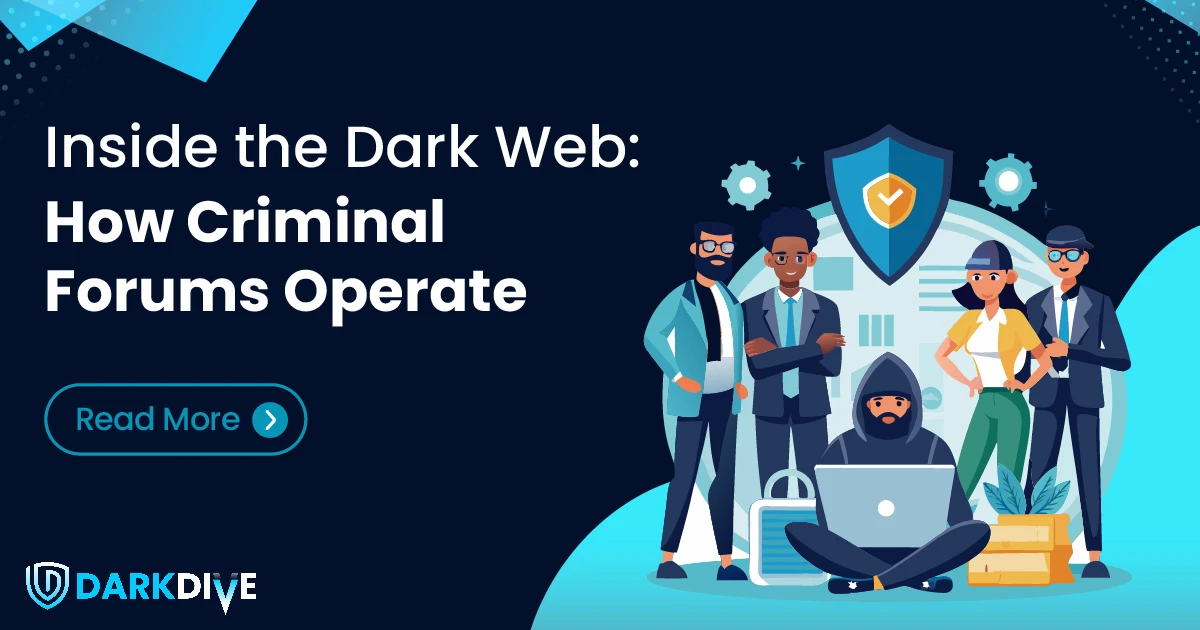
The dark web isn’t just a scary part of the internet; it’s also a well-organized black market. And in the middle of it all? Forums for cybercrime. These aren’t crazy chat rooms for hackers. They are organized, private, and incredibly professional places where attacks start, are bought, and are scaled up.
Access isn’t simple. Entry often requires payment, referrals, or rigorous vetting. And once inside, the level of coordination is startling. These forums don’t just sell stolen goods; they offer services, guides, tools, and even customer support. If you want to understand how cybercrime functions today, you start here.
What Happens Inside These Forums?
Think of these forums as black-market versions of Reddit, LinkedIn, and eBay rolled into one. What’s being traded might shock you:
- Stolen data: Everything from credit card numbers and healthcare records to passport scans and login credentials. The data is sorted by industry, geography, or organization type.
- Ransomware-as-a-Service (RaaS): Attackers don’t need to build malware anymore. Developers sell ready-to-deploy ransomware kits to affiliates who launch attacks and split the profits.
- Access brokers: Selling remote access to compromised networks, often with VPN credentials, RDP logins, and admin privileges.
- Zero-day exploits: Code that targets unknown vulnerabilities, often before any patch exists.
- Step-by-step tutorials: How-tos on phishing, SIM swapping, carding, and bypassing MFA—sometimes written with almost academic clarity.
And yes, these platforms include reviews, seller ratings, escrow services, and refund policies. It’s commerce, just aimed at your business.
How Forums Fuel the Cybercrime Supply Chain
What makes these forums even more dangerous is how they connect every part of an attack lifecycle. A single post selling stolen credentials may trigger a phishing campaign. A ransomware affiliate may buy access to your network. A vulnerability spotted in your vendor’s software may be shared in a tutorial the same week.
This interconnected system means even small leaks—an employee’s reused password, a misconfigured port—can end up in the hands of people who know exactly how to turn it into a larger compromise. And with AI automating everything from fake profiles to exploit discovery, this underground supply chain is faster than ever.
Why This Matters to Security Teams
If you’re only watching what’s inside your network, you’re already behind. The dark web is where the planning begins: where your competitors’ breaches might’ve started, where tools to target your company are listed, and where mentions of your brand could be increasing without your knowledge.
SOC teams today need to move beyond firewalls and endpoint logs. Intelligence from the dark web, especially these forums, is critical. Not just for reacting faster, but for seeing the threat before it even arrives.
How DarkDive Keeps You Informed
This is where DarkDive makes the difference. Built to monitor underground forums and marketplaces in real time, DarkDive gives security teams visibility into the digital shadows.
Whether it’s a post selling credentials tied to your domain or a thread mentioning your tech stack, DarkDive flags it. With analyst-reviewed findings, weekly intelligence updates, and compliance-ready dashboards, it brings you not just data—but context, clarity, and timing. Because knowing after a breach isn’t enough anymore.
Conclusion
The dark web isn’t a myth. It’s a marketplace that is structured, scalable, and constantly evolving. These forums are the assembly lines of cybercrime, and ignoring them means missing the early warning signs.
Understanding how these forums work and monitoring them effectively gives you an edge. It turns your defense from reactive to proactive. Because if you’re not watching the underground, someone in it might already be watching you.
